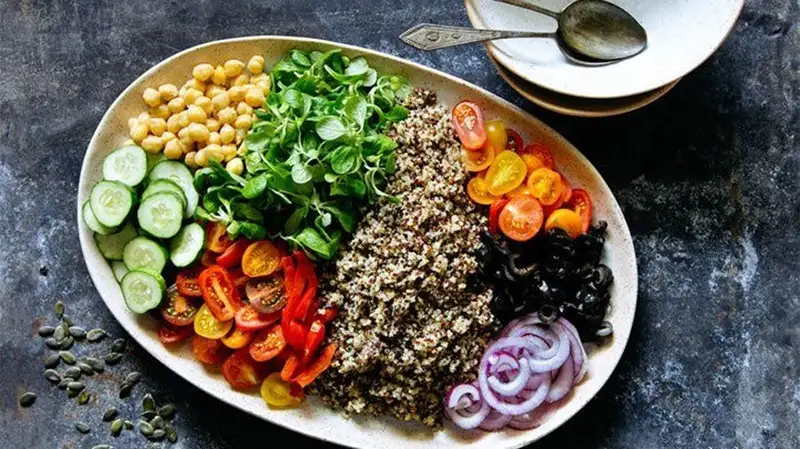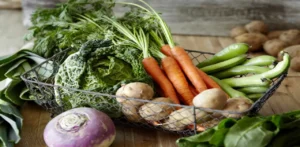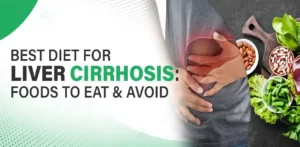Contents
- 1 Understanding Rheumatoid Arthritis and Diet
- 2 Best Foods for Rheumatoid Arthritis Patients
- 3 Nutrition During Rheumatoid Arthritis Treatment
- 4 Rheumatoid Arthritis-Friendly Meals and Recipes
- 5 Diet for Rheumatoid Arthritis Management
- 6 Rheumatoid Arthritis Nutrition Therapy
- 7 Conclusion: Order Healthy Food from IntRest
Rheumatoid arthritis (RA) is a chronic inflammatory disorder affecting millions worldwide. It primarily attacks the joints, causing painful swelling, stiffness, and eventual joint deformity. While medical treatments are essential for managing RA, the role of diet and nutrition cannot be underestimated. A well-planned rheumatoid arthritis diet can significantly impact inflammation, pain management, and overall well-being. This blog will explore the best foods for rheumatoid arthritis patients, offer practical nutrition tips, and provide meal ideas to support you in your journey toward better health.
Understanding Rheumatoid Arthritis and Diet
Rheumatoid arthritis is an autoimmune condition where the immune system mistakenly attacks the body’s tissues. This leads to inflammation, primarily in the joints, but it can also affect other organs. While there’s no cure for RA, a combination of medication, physical therapy, and dietary changes can help manage symptoms and improve quality of life.
Why Diet Matters in RA:
The foods we consume can influence inflammation levels in the body. Some foods exacerbate inflammation, while others can help reduce it. A rheumatoid arthritis diet focuses on incorporating anti-inflammatory foods and avoiding those that trigger inflammation.

Best Foods for Rheumatoid Arthritis Patients
Fatty Fish:
- Fatty fish such as salmon, mackerel, and sardines are rich in omega-3 fatty acids. Omega-3s have potent anti-inflammatory effects, which can help reduce joint pain and stiffness associated with RA.
Leafy Greens:
- Vegetables like spinach, kale, and Swiss chard are packed with antioxidants and nutrients that help combat inflammation. They are also high in vitamins A, C, and K, which are beneficial for immune function.
Nuts and Seeds:
- Almonds, walnuts, flaxseeds, and chia seeds are excellent sources of healthy fats, fiber, and protein. They provide a convenient way to boost your intake of anti-inflammatory omega-3 fatty acids.
Berries:
- Blueberries, strawberries, and other berries are rich in antioxidants and vitamins that help fight inflammation. They also contain anthocyanins, compounds that reduce inflammation and boost the immune system.
Olive Oil:
- Extra virgin olive oil is a cornerstone of the Mediterranean diet, known for its anti-inflammatory properties. It contains oleocanthal, a compound that has effects similar to non-steroidal anti-inflammatory drugs (NSAIDs).
Garlic and Onions:
- Both garlic and onions have anti-inflammatory and immune-boosting properties. They contain compounds that inhibit the production of inflammatory cytokines.
Whole Grains:
- Whole grains like brown rice, quinoa, and whole wheat bread are high in fiber, which can help reduce inflammation. They also provide a steady source of energy without spiking blood sugar levels.
Beans:
- Beans are an excellent source of protein, fiber, and essential nutrients. They help maintain a healthy weight, which is crucial for reducing pressure on the joints.
Nutrition During Rheumatoid Arthritis Treatment
Maintaining a balanced diet is crucial during rheumatoid arthritis treatment. Here are some key nutrition tips to keep in mind:
Stay Hydrated:
- Drinking plenty of water is essential for overall health. Proper hydration helps keep the joints lubricated and can reduce inflammation.
Balance Macronutrients:
- Ensure your diet includes a healthy balance of carbohydrates, proteins, and fats. This helps maintain energy levels and supports the body’s healing processes.
Monitor Portion Sizes:
- Maintaining a healthy weight is important for managing RA. Excess weight can put additional strain on your joints, exacerbating symptoms. Be mindful of portion sizes to avoid overeating.
Limit Sugar and Processed Foods:
- Foods high in sugar and refined carbohydrates can trigger inflammation. Opt for natural sweeteners and whole foods instead.
Include Probiotics:
- Probiotics found in yogurt, kefir, and fermented foods can support gut health, which in turn can influence inflammation and immune function.

Rheumatoid Arthritis-Friendly Meals and Recipes
Creating rheumatoid arthritis-friendly meals doesn’t have to be complicated. Here are some meal ideas and recipes to inspire your kitchen creativity:
Breakfast:
- Smoothie Bowl: Blend spinach, frozen berries, a banana, and almond milk. Top with chia seeds and a drizzle of honey.
- Oatmeal with Nuts and Berries: Cook oats with almond milk, and top with fresh berries, chopped nuts, and a sprinkle of cinnamon.
Lunch:
- Quinoa Salad: Mix cooked quinoa with chopped veggies (like bell peppers, cucumbers, and cherry tomatoes), feta cheese, and a lemon-olive oil dressing.
- Turkey and Avocado Wrap: Fill a whole wheat wrap with sliced turkey, avocado, spinach, and a dollop of hummus.
Dinner:
- Baked Salmon: Season a salmon fillet with herbs and lemon, bake until cooked through. Serve with a side of steamed broccoli and brown rice.
- Veggie Stir-Fry: Stir-fry a mix of your favorite vegetables in olive oil with garlic and ginger. Serve over quinoa or whole grain rice.
Snacks:
- Trail Mix: A mix of almonds, walnuts, dried cranberries, and dark chocolate chips.
- Veggies and Hummus: Sliced bell peppers, cucumbers, and carrots served with a side of hummus.
Also Read: “MS Diet: Foods to Fight Fatigue & Manage Symptoms”
Diet for Rheumatoid Arthritis Management
A strategic diet can be a powerful ally in managing rheumatoid arthritis. Here are some key components of an effective RA management diet:
- Anti-inflammatory Foods: Prioritize foods known for their anti-inflammatory properties, such as fatty fish, leafy greens, and berries.
- Low Glycemic Index Foods: Foods that release sugar slowly into the bloodstream help maintain stable energy levels and reduce inflammation.
- High Fiber: A diet rich in fiber supports overall health and can help manage inflammation.
- Lean Proteins: Include sources of lean protein like fish, beans, and poultry to support muscle maintenance and repair.
- Healthy Fats: Incorporate sources of healthy fats like olive oil, nuts, and avocados to support joint health.
Rheumatoid Arthritis Nutrition Therapy
Nutrition therapy for rheumatoid arthritis involves a tailored approach to eating that supports the reduction of inflammation and joint pain. This therapy often includes:
- Individualized Meal Plans: Working with a dietitian to create a meal plan that meets your specific nutritional needs and health goals.
- Supplementation: Adding supplements such as omega-3 fatty acids, vitamin D, and probiotics to fill any nutritional gaps.
- Monitoring and Adjusting: Regularly reviewing and adjusting the diet based on symptoms and response to treatment.
Conclusion: Order Healthy Food from IntRest
Managing rheumatoid arthritis through diet is a journey that involves making informed food choices to support overall health and reduce inflammation. At IntRest, we understand the unique dietary needs of individuals with RA. Our platform allows you to order healthy meals tailored to your specific illness, diet, and allergies. Whether you’re looking for rheumatoid arthritis-friendly recipes or convenient meal delivery options, IntRest is here to support you in achieving better health and wellness.
Visit IntRest today to explore our selection of healthy meals and start your journey toward better rheumatoid arthritis management through optimal nutrition.



